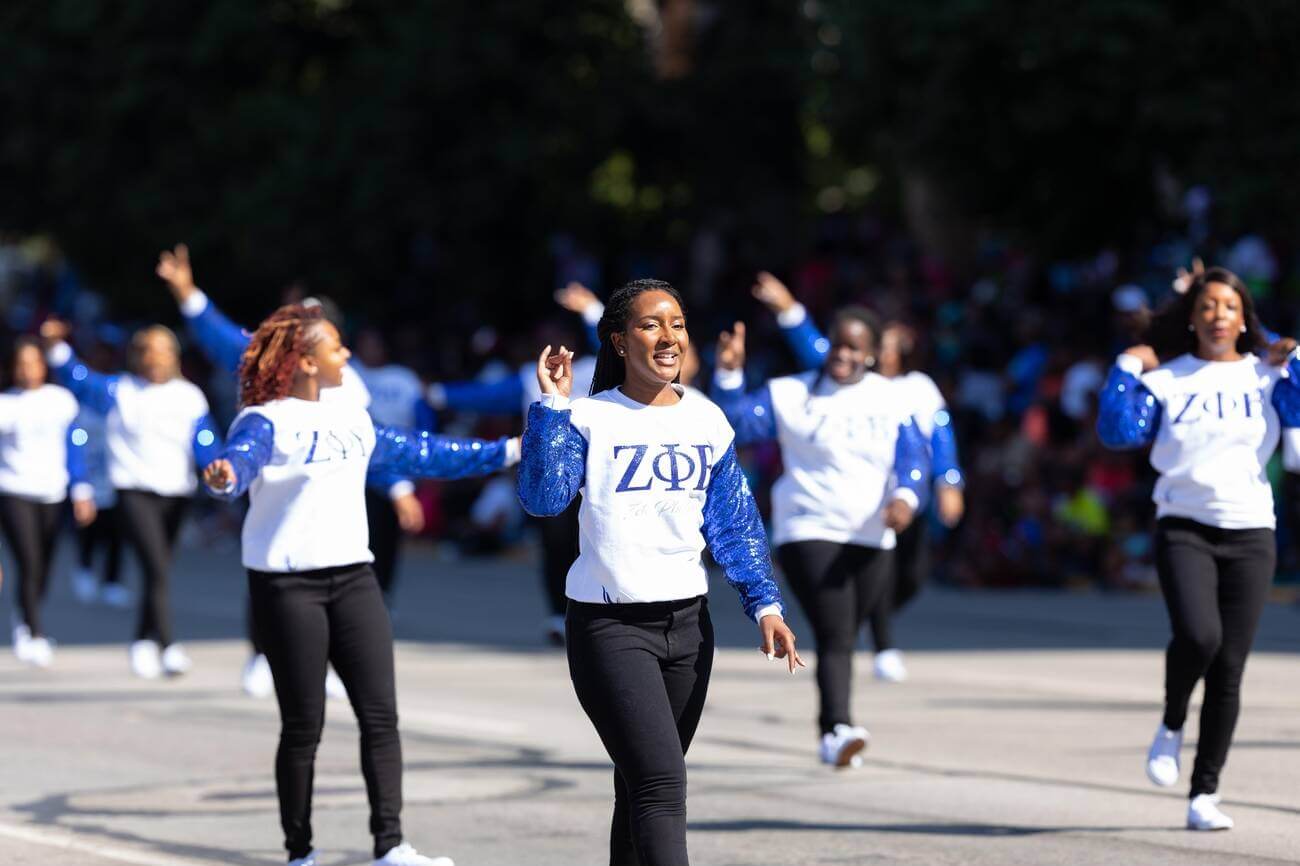Are you interested in becoming an ordained minister in Alabama? Whether you want to perform weddings or run a church, becoming an ordained minister is not as complicated as you think. With the proper guidance and resources, you can become an ordained minister in Alabama in just a few simple steps. This post will guide you through the process, from application to receiving your official ordination credentials, enabling you to perform ceremonies in Alabama legally.
Understanding Ordination in Alabama
If you’re interested in becoming an ordained minister in Alabama, there are a few things you should know. This section will cover the basics of ordination and Alabama’s legal framework for religious organizations.
Ordination Basics
To become an ordained minister, you’ll need to undergo training and certification. This typically involves studying religious texts and doctrine and completing a program of study at a seminary or other religious institution.
Once you’ve completed your training, you’ll need to be officially ordained by a religious organization or denomination. This process typically involves a ceremony in which you are recognized as a minister and given the authority to perform religious rites and ceremonies.
Alabama’s Legal Framework
In Alabama, the process of becoming an ordained minister is regulated by state law. Specifically, Alabama Code Title 30, Chapter 1, Section 16 states that individuals ordained or designated ministers of a religious denomination are authorized to solemnize marriages.
This means that if you want to perform weddings in Alabama, you’ll need to be ordained or designated as a minister by a recognized religious organization or denomination. Once ordained, you can legally perform weddings and other religious ceremonies in the state.
It’s important to note that Alabama’s marriage law only recognizes marriages by authorized ministers. If you’re not ordained or authorized to perform marriages, your weddings will not be legally recognized in the state.
Becoming an ordained minister in Alabama requires completing a program of study at a religious institution and being officially ordained by a recognized religious organization or denomination. Once you’re ordained, you’ll be authorized to perform weddings and other religious ceremonies in the state.
Paths to Becoming an Ordained Minister
If you are considering becoming an ordained minister in Alabama, there are two main paths: traditional religious institutions and online ordination.
Traditional Religious Institutions
If you prefer a more traditional route, you may want to consider attending a religious society or Christian church. Many of these institutions offer programs that can lead to ordination. These programs are rigorous and may require several years of study. However, they can also give you a solid theological and pastoral care foundation.
To become ordained through a traditional religious institution, you must typically complete a formal application process. This may involve submitting transcripts, letters of recommendation, and a statement of purpose. You may also need to undergo an interview with a panel of church leaders.
Online Ordination
If you are looking for a more flexible and accessible path to ordination, you may want to consider online ordination. Several organizations offer online ordination, including Get Ordained, Universal Life Church (ULC), and ULC Ministries.
Online ordination typically involves completing an ordination application and paying a fee. The application process is often simple and can be completed in minutes. Once ordained, you will be authorized to perform weddings, funerals, and other religious ceremonies.
It is important to note that online ordination may only be recognized by some religious institutions or the state of Alabama. If you plan to pursue a career as a pastor or minister, you may need to obtain additional credentials or education. However, online ordination can be a great way to start your journey to becoming an ordained minister.
Performing Wedding Ceremonies in Alabama
If you’re interested in becoming an ordained minister in Alabama, you may wonder what it takes to perform a legal wedding ceremony in the state. Here’s what you need to know about the marriage license, legal requirements, and ceremony preparation and execution.
Marriage License and Legal Requirements
Before you can perform a wedding ceremony in Alabama, the couple must obtain a marriage license from the judge of probate in the county where the ceremony will occur. The couple must provide identification and pay a fee to obtain the permit. The probate judge will then issue the license, which is valid for 30 days.
As an ordained minister, you are legally empowered under the Alabama Code § 30-1-7 protections to solemnize marriages. This means you can legally perform a wedding ceremony in Alabama as long as you follow the state’s legal requirements. It’s important to note that Alabama does not require officiant registration or an office dedicated to registering wedding officiants.
Ceremony Preparation and Execution
Once you have been ordained and the couple has obtained their marriage license, it’s time to prepare for the wedding ceremony. Here are some tips to help you prepare and execute a legal wedding ceremony in Alabama:
- Learn about wedding ceremony terminology and conventions. This will help you understand the traditional structure of a wedding ceremony and allow you to customize it to the couple’s preferences.
- Write and develop the wedding ceremony script. Work with the couple to create a ceremony that reflects their personalities and values.
- Practice and rehearse the ceremony script. This will help you feel confident and prepared on the wedding day.
On the day of the wedding, arrive early to set up and ensure everything is in order. During the ceremony, speak clearly and confidently and follow the script you have prepared. After the ceremony, the marriage license is signed and returned to the probate judge within 30 days to make the marriage legal.
With these tips and the legal protections of Alabama Code § 30-1-7, you can confidently officiate legal wedding ceremonies in Alabama as an ordained minister.
Ministerial Duties Beyond Weddings
As an ordained minister in Alabama, your duties extend beyond officiating weddings. Your role in the congregation is to provide spiritual leadership and community services. You’ll lead public worship, baptisms, funerals, and other religious ceremonies.
Spiritual Leadership and Community Services
You’ll guide your congregation in their faith journey as a spiritual leader. This involves providing guidance, support, and counseling to your members. You’ll also be responsible for organizing and leading community services, such as food drives, charity events, and outreach programs.
Funerals, Baptisms, and Other Ceremonies
Funerals, baptisms, and other ceremonies are essential to your role as an ordained minister. You’ll provide comfort and support to grieving families during funerals and be responsible for conducting baptisms and other religious ceremonies.
To ensure that you’re fully equipped to handle these responsibilities, it’s important to have a strong understanding of the religious body you’re affiliated with, including its beliefs, practices, and teachings.
In addition to these duties, you’ll also be responsible for maintaining your church and its facilities. This includes managing finances, keeping the building, and ensuring the church is welcoming and safe for all members.
Becoming an ordained minister in Alabama is a rewarding and fulfilling experience. With your leadership and guidance, you’ll be able to positively impact the lives of your congregation and the community as a whole.
Resources and Support for Ordained Ministers
As an ordained minister in Alabama, you have access to various resources and support to help you better serve your congregation. Here are some of the most important resources and support that you should be aware of:
Training and Education
One of the most important resources for ordained ministers is training and education. This can include formal theological education as well as more informal training opportunities. Many different minister training centers and programs are available in Alabama, so you should take some time to research your options and find the one that is right for you.
Ministerial Supplies and Networking
In addition to training and education, ordained ministers need access to ministerial supplies and networking opportunities. These can include everything from ordination supplies to networking events and conferences. Some of the most popular resources for ordained ministers in Alabama include World Christianship Ministries and similar organizations. These organizations offer various resources and support to help you better serve your congregation and grow your ministry.
Becoming an ordained minister in Alabama is challenging but rewarding. With the right resources and support, you can build a successful ministry and positively impact the lives of those around you. So take advantage of the many resources available and always continue learning and growing as a minister.
Frequently Asked Questions
What are the steps to becoming an ordained minister in Alabama?
Becoming an ordained minister in Alabama is a simple process. You can either get ordained through a religious organization or an online ordination service. Once you have your ordination credentials, you must register with the Alabama Secretary of State’s office to perform weddings legally in the state.
Can anyone officiate a wedding in Alabama, or must they be ordained?
According to Alabama law, individuals ordained or designated as ministers of a religious denomination are authorized to solemnize marriages. Only ordained ministers or religious officials can legally perform weddings in Alabama.
How long does the process of becoming an ordained minister usually take?
Becoming an ordained minister in Alabama can take as little as a few minutes or up to a few weeks, depending on the organization or service you choose. Online ordination services typically take a few minutes, while religious organizations may require more time.
What’s the cost associated with getting ordained to officiate weddings in Alabama?
The cost of getting ordained to officiate weddings in Alabama varies depending on your chosen organization or service. Online ordination services are typically free or low-cost, while religious organizations may require a donation or fee to become ordained.
Are online ordinations accepted for officiating weddings in Alabama?
Yes, online ordinations are accepted for officiating weddings in Alabama. You can legally perform weddings there if you have your ordination credentials and are registered with the Alabama Secretary of State’s office.
Is the Universal Life Church or similar organizations recognized for ordination in Alabama?
Yes, the Universal Life Church and similar organizations are recognized for ordination in Alabama. You can legally perform weddings there if you have your ordination credentials and are registered with the Alabama Secretary of State’s office.



